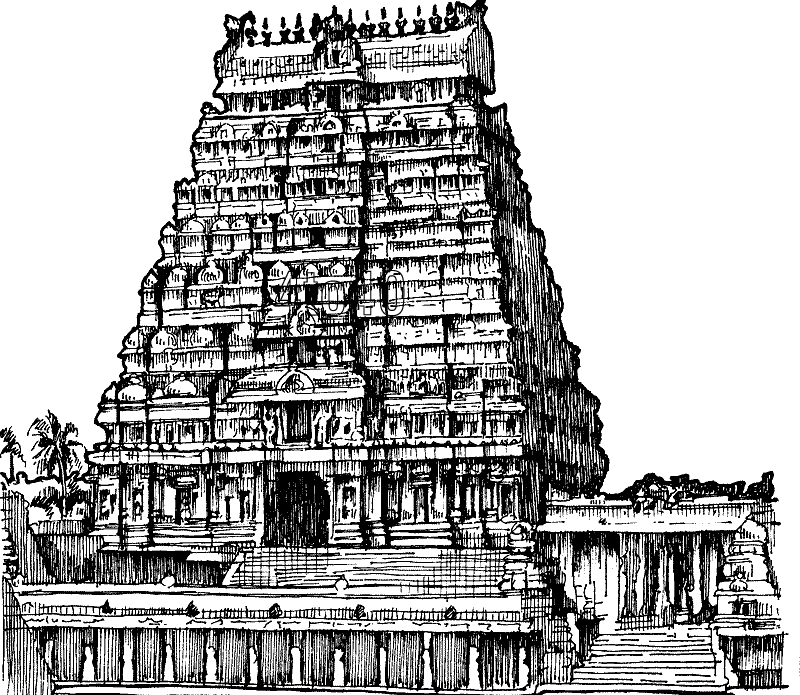LALITHA SAHASRANAMAM - Namah # 145
- S Subramaniam
- Dec 27, 2022
- 2 min read

LALITHA SAHASRANAMAM
@ S. Subramaniam
[ 45 Nityamukta Nirvikara Nishprapancha Nirashraya ]
निर्विकारा (145)
Nirvikara (145)
Meaning:

Devi is devoid of any modifications or changes. Brahman does not change.
Devi remains static.
Interpretation:
Vikara means modification or change and the prefix Nira negates it. Therefore we get the meaning for Nirvikara as not subject to any changes or modifications. In this namah Devi is described in that way.

There are two aspects of creation viz. Purusha and Prakriti. Purusha is the Supreme consciousness that is free of bondage, full of knowledge and creative power. It does not undergo any modification but constantly witnesses those countless modifications that happen around it. Purusha is Nirvikara.
Prakriti is opposite of Purusha. Prakriti is the root cause of creation and undergoes changes continuously. Usually Lord Shiva is depicted as the Purusha part and Devi as the Prakriti part. But as per this namah both Lord Shiva and Devi are together referred to as Nirvikara.
Adi Shankara and Nirvikara

Amongst the numerous compositions of Adi Shankara one text is titled Aparoksha Anubhuti or Self Realization of Brahman. It is an introductory work by Adi Shankaracharya that expounds Advaita Vedanta philosophy. Aparoksha refers to the 'nearest of the near', or one's own Self. Anubhuti means to realize, to experience.
In sloka # 25 Shankara mentions about Nirvikara.
निर्विकारो निराकारो निरवद्योऽहमव्ययः।
नाहं देहो ह्यसद्रूपो ज्ञानमित्युच्यते बुधैः।।25।।
Nirvikaro Nirakaro Niravadhyo Aham avyaya Naham Deho Hyasadroopo Jnana Mithyuchyuthe bBudhai.
The wise say that the true knowledge is that “I am definitely not the body which is an illusion.But I am without change, without any form,without any blemish and without any decay.”
Author's Notes

Today I am going to introduce to the readers an unknown name in Vedic Philosophy who made rich contributions despite being born with several physical deformities.
Ushtaavukruhu also known as Ashta Vakra (literally means "eight deformities"), was a revered Vedic sage in Hinduism who is credited with composing the Ashtavakra Gita considered by many scholars as a rich literature on the Advaita Vedanta. It is composed in the form of a dialogue between himself and Janaka, king of Mithila and father of Devi Sita.
It's the only Gita referred to by scholars as Maha Gita.

In one of the verses the sage quotes:
निरपेक्षो निर्विकारो निर्भरः शीतलाशयः ।
अगाधबुद्धिरक्षुब्धो भव चिन्मात्रवासनः ॥ १७ ॥
Nirapekṣo Nirvikaro Nirbharaḥ Sheetaladhayaḥ Agadha buddhir akṣubdho bhava chinmatra vasanaḥ |
You are unconditioned and changeless, formless and immovable, unfathomable awareness and unperturbable, so hold to nothing but consciousness - is the meaning of the above verse.
From the above two references it will be amply clear that the word Nirvikara purely relates to Advaita Philosophy.
Disclaimer: All matters contained in this article are the property of www.templesofasia.com. The opinions expressed in this article are purely that of the author. The author alone is responsible for the accuracy, authenticity, completeness and validity of all the information in the article.


Comments